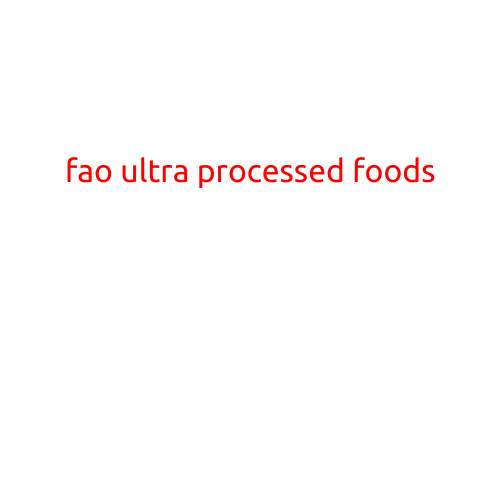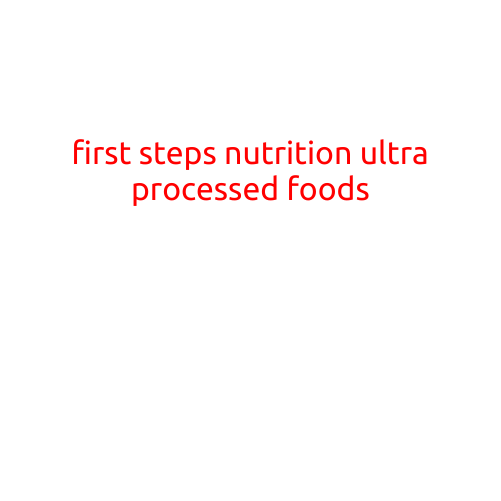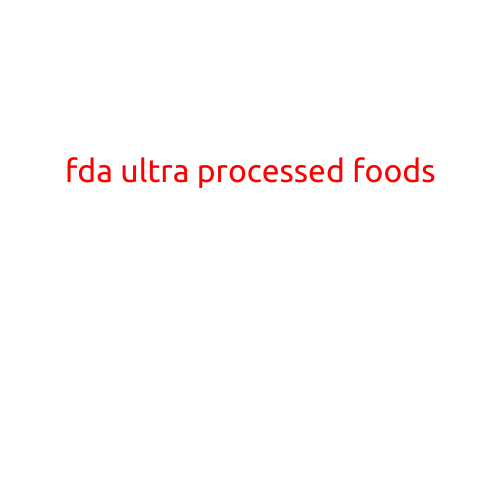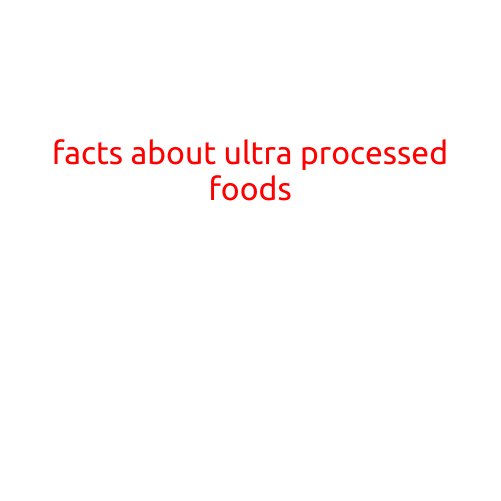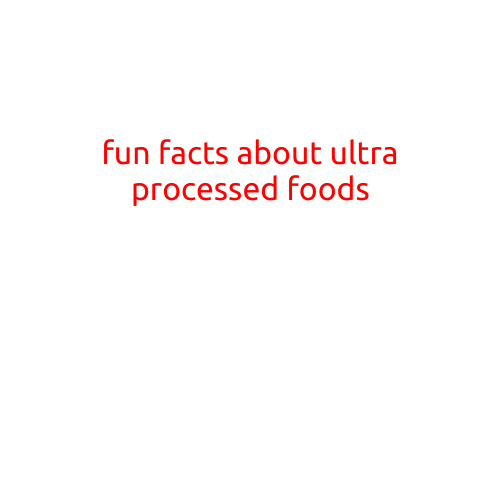
Fun Facts About Ultra-Processed Foods
Ultra-processed foods are a staple in many of our diets, but how much do we really know about them? These foods are created through a series of industrial processes that transform raw ingredients into a final product that is often highly palatable, convenient, and affordable. However, beyond their appealing taste and ease of preparation, ultra-processed foods have some fascinating, yet surprising, facts associated with them.
1. Ultra-processed foods are everywhere
Ultra-processed foods are the most widely consumed type of food in the modern diet. They account for around 50% of the average person’s daily calorie intake, and in many countries, they make up over 60% of total daily energy intake. Whether it’s a frozen pizza, a bag of chips, or a sugary snack bar, chances are you’ve consumed ultra-processed foods today.
2. They’re highly addictive
Ultra-processed foods are specifically designed to be highly palatable and stimulating, which can lead to overconsumption. Many of these foods contain addictive combinations of sugar, salt, and fat that activate our brain’s reward centers, making it difficult to stop at just one serving. Think about it – who can resist the temptation of a freshly baked bag of potato chips or a warm, gooey cookie straight from the oven?
3. They’re often made with hundreds of ingredients
While the ingredients listed on the packaging might seem harmless, ultra-processed foods often contain dozens, even hundreds, of additives, preservatives, and flavor enhancers. For example, a single serving of frozen pizza might contain over 30 different ingredients, including artificial colors, flavors, and preservatives.
4. Their nutritional value is questionable
It’s no secret that ultra-processed foods are often void of essential nutrients like fiber, vitamins, and minerals. Many of these foods are actually linked to increased risks of chronic diseases like heart disease, type 2 diabetes, and even certain types of cancer. What’s more, they often contain high levels of added sugars, refined carbohydrates, and saturated fats that can lead to weight gain and other negative health outcomes.
5. They’re a major contributor to food waste
Ultra-processed foods are often packaged in large quantities, which can lead to waste if not consumed before their expiration dates. In the United States alone, it’s estimated that over 60 million tons of food waste are generated each year, with a significant portion of that waste comprising ultra-processed foods.
6. They’re a reflection of our culture
Ultra-processed foods are not only a reflection of our dietary habits but also our cultural values. They’re a product of our society’s increasing reliance on convenience, speed, and affordability. Think about it – who has time to cook a nutritious meal from scratch when we can pick up a pre-packaged meal from the grocery store or a food delivery app?
7. There’s a growing movement against ultra-processed foods
Concerns about the negative health impacts of ultra-processed foods have led to a growing movement towards more whole, minimally processed foods. Many consumers are making conscious choices to reduce their ultra-processed food intake and opt for fresh, locally sourced ingredients instead.
Conclusion
While ultra-processed foods might be convenient and tasty, it’s essential to be aware of their potential negative impacts on our health and the environment. By understanding the facts about ultra-processed foods, we can make more informed choices about what we eat and take control of our own health. Remember, a balanced diet that includes a variety of whole foods is still the best way to ensure optimal health and well-being.
